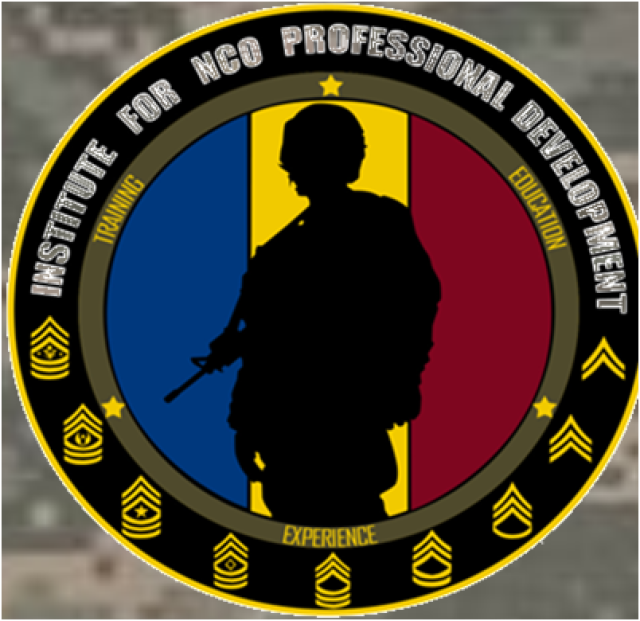
LOS ANGELES (Feb. 2, 2010)-Commandants from the Army's Noncommissioned Officer Academies discussed new ways to train and educate Soldiers and noncommissioned officers at the University of Southern California's Institute for Creative Technologies on Jan. 26.
Dr. Randy Hill, a West Point Alumnus and Director of ICT, outlined their goal to create more effective ways of educating and training Soldiers: "We want to have an impact. We're here to help."
The Institute for Creative Technologies focuses on improving learning through the development of interactive digital media. Their in-house experts in psychology, education and computer science work with the entertainment industry to produce virtual humans and computer training, used in simulations to develop immersive experiences, which leads to better decision-making, cultural awareness, leadership and healthcare.
The Army isn't the only institution impressed with the Institute for Creative Technologies-some of their breakthroughs were used in the recent blockbuster James Cameron film Avatar.
Command Sgt. Maj. (Retired) John Sparks, director of the Institute for Noncommissioned Officer Professional Development, urged the assembled commandants to "keep their brain housing groups open," and think of ways to use ICT's developments to improve training for their Soldiers.
"We need to get out of how we think as leaders and as trainers ... [Often] the least appreciated person in training is the person being trained. We think in terms of us, not them," Sparks said. "We can't continue to live as individuals. We want a way ahead that will support everyone."
"I want to set a few goals here: enjoy this training and take something back to your organization," said Command Sgt. Maj. David M. Bruner, U.S. Army Training and Doctrine Command senior enlisted advisor.
"This has an impact on Soldiers and noncommissioned officers," he said. "This is a great opportunity to get to know each other and share ideas, to think how we can better educate Soldiers today and in the future."
NCOA Commandants are command sergeants major responsible for training students in the Warrior Leaders Course, Advanced Leaders Course, Senior Leaders Course, leading the only organizations in the Army solely composed of NCOs.
Command Sgt. Major John L. Longcor from the Maneuver Center of Excellence NCO Academy at Fort Benning, Ga. put the commandant's responsibilities in perspective for the academics at USC. "It's like being the dean of a small college," he said.
The Commandants spent three days attending briefings on how students learn, the benefits and drawbacks of technology in different learning environments, ways to analyze the value of different training methods, culminating in a live demonstration of a virtual infantry simulator called Flatworld at Camp Pendleton, Calif.
"I didn't know what I was getting into. I realize that the way we're supposed to do things isn't necessarily the best way to do them-it's just the way we've always done them. Some of it needs to change," said 1st Sgt. Timothy Metheney of Fort Knox, Ky. "We all do different types of training, but we all face the same issues with teaching."
Command Sgt. Maj. Joseph Lister, from the Judge Advocate General NCO Academy in Charlottesville, Va., agreed. "We learned new approaches here. The JAG school could use this technology for negotiation training, witness interviewing, or teaching operational law."
"These are processes that haven't been utilized," remarked Command Sgt. Maj. Dean Keveles of Fort Sill, Okla. "Different leaders have different methods of training and different knowledge, and this is a way of getting to the best of that."
Even attending the workshop was good training, he said, because "it allows my subordinates to exercise more responsibility while I'm gone, and it gets me out of my comfort zone and lets me think differently."
ICT staff was equally impressed with the commandants.
Rich DiNinni, a project manager at ICT, said that working with the Army has "been one of the highlights" of his job. "We've never had a group that was so honest and as engaged as these Commandants," he said.
For more information about ICTs work with the Noncommissioned Officer Corps, see the next issue of the NCO Journal.
Related Links:
The U.S. Army Training and Doctrine Command Facebook Page

Social Sharing